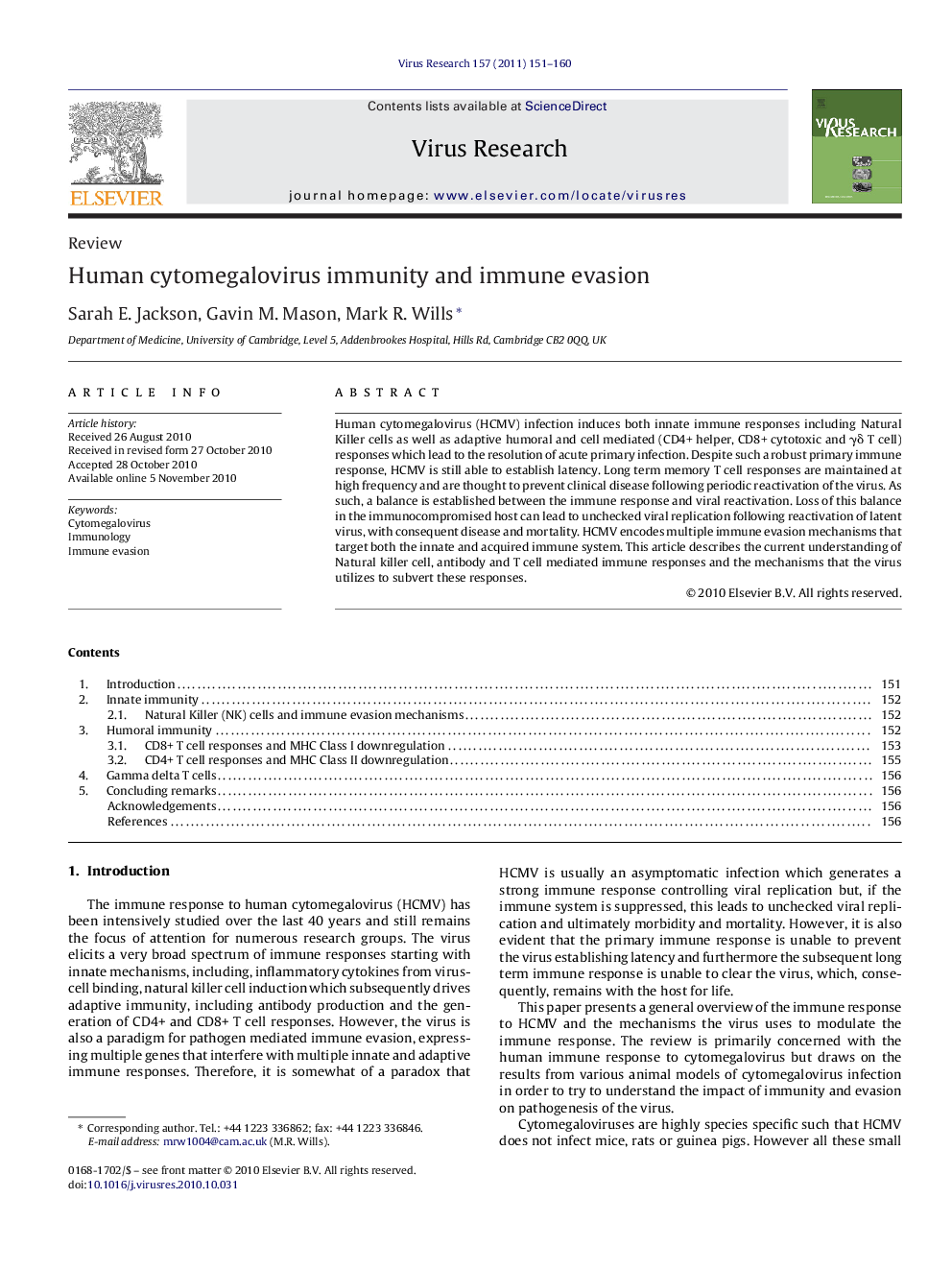| Article ID | Journal | Published Year | Pages | File Type |
|---|---|---|---|---|
| 3429179 | Virus Research | 2011 | 10 Pages |
Human cytomegalovirus (HCMV) infection induces both innate immune responses including Natural Killer cells as well as adaptive humoral and cell mediated (CD4+ helper, CD8+ cytotoxic and γδ T cell) responses which lead to the resolution of acute primary infection. Despite such a robust primary immune response, HCMV is still able to establish latency. Long term memory T cell responses are maintained at high frequency and are thought to prevent clinical disease following periodic reactivation of the virus. As such, a balance is established between the immune response and viral reactivation. Loss of this balance in the immunocompromised host can lead to unchecked viral replication following reactivation of latent virus, with consequent disease and mortality. HCMV encodes multiple immune evasion mechanisms that target both the innate and acquired immune system. This article describes the current understanding of Natural killer cell, antibody and T cell mediated immune responses and the mechanisms that the virus utilizes to subvert these responses.
Research highlights▶ Cytomegalovirus virus elicits a very broad spectrum of immune responses. ▶ Innate mechanisms, including, inflammatory cytokines from virus-cell binding and natural killer cell induction. ▶ Adaptive immune responses include neutralising antibody production and the generation of CD4+ and CD8+ T cell responses. ▶ Cytomegalovirus is also a paradigm for pathogen mediated immune evasion. ▶ Multiple cytomegalovirus genes interfere with both innate and adaptive immune responses.
